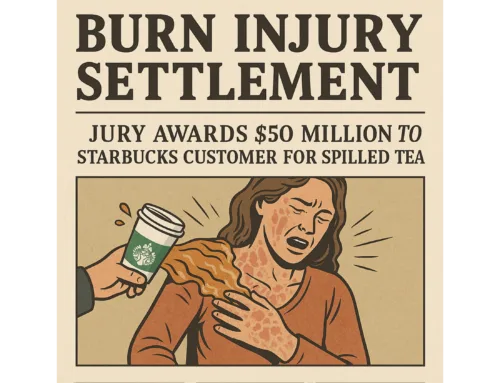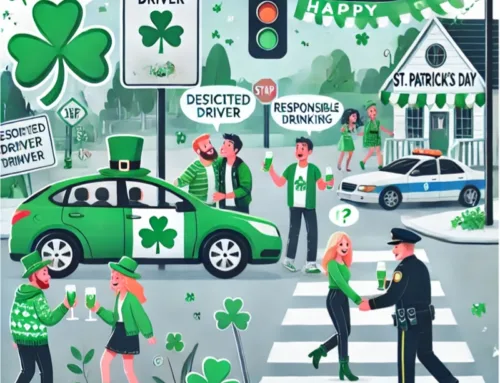Dogs have been referred to as “man’s best friend” for over 150 years. This title was first used in a Supreme Court case dating back to 1870, when an attorney bestowed this phase on dogs for the “unselfish friend that dogs are in a selfish world.” While anyone who has owned a dog can deeply relate to their devoted canine companion, there is probably someone deeply fearful of that same dog based on personal experience or just what we’ll call “pooch paranoia”. Dogs can be intimidating, if not downright aggressive, and many bite or otherwise attack people. In fact, there are over 4 million reported dog bites every year (and probably countless others that go unreported). According to the Center for Disease Control, approximately 880,000 dog bite victims seek emergency medical treatment at U.S. hospitals and health care facilities. Furthermore, of those, over 30,000 dog bite victims undergo some sort of reconstructive surgery, and 15 to 20 others die. It’s clear that while this isn’t necessarily a “widespread” problem, it is a serious problem with potentially tragic consequences.
When it comes to dog bites and who is responsible, New Jersey is what is called a strict liability state. The relevant statutory section states:
The owner of any dog which shall bite a person while such person is on or in a public place, or lawfully on or in a private place, including the property of the owner of the dog, shall be liable for such damages as may be suffered by the person bitten, regardless of the former viciousness of such dog or the owner’s knowledge of such viciousness. [Emphasis added]
For the purpose this statute, a person is lawfully upon the private property of such owner when he is on the property in the performance of any duty imposed upon him by the laws of this state or the laws or postal regulations of the United States, or when he is on such property upon the invitation, express or implied, of the owner thereof. N.J.S.A. 4:19-16
 If you own a dog, this is important information which should provide you even more incentive to be vigilant in monitoring “Rover” when in the presence of other people. Unless someone has trespassed onto your property (or in the event of a few other rare situations), you will be held legally responsible for any injury your dog causes and, as a result, either your insurance carrier (if dog bites are covered in your homeowners’ policy) or you personally will be required to compensate the dog bite victim for damages. This makes it imperative that you check with your homeowner’s insurance carrier to make sure your dogs are covered. Many companies don’t offer coverage for dogs and dog bites, so you may have no protection there. Some insurers make you tell them what dogs you own.
If you own a dog, this is important information which should provide you even more incentive to be vigilant in monitoring “Rover” when in the presence of other people. Unless someone has trespassed onto your property (or in the event of a few other rare situations), you will be held legally responsible for any injury your dog causes and, as a result, either your insurance carrier (if dog bites are covered in your homeowners’ policy) or you personally will be required to compensate the dog bite victim for damages. This makes it imperative that you check with your homeowner’s insurance carrier to make sure your dogs are covered. Many companies don’t offer coverage for dogs and dog bites, so you may have no protection there. Some insurers make you tell them what dogs you own.
Of course, damages in dog bite cases are primarily based on physical harm caused by the bite(s) and the kind of medical attention that was required as a result. This is where a dog bite can become problematic. If you are bitten by a dog, how do you decide when to see a doctor? What if the dog bite seems minor at the time, not really breaking the skin or, if it does, not drawing any blood? And, as is often the case, what if the dog belongs to someone you know and perhaps care about, such as a friend or family member? Doesn’t seeking seemingly ”unnecessary” medical attention open up a Pandora’s box that might involve an insurance company, the police and the local Animal Control Officer? Besides, because most people consider rabies the only real serious “threat” from a dog bite, they’re usually relieved when they can confirm the dog has gotten all its shots. (That can usually only be done by the Animal Control Officer, who is contacted by the police when they file their report – another reason to get the police involved!)
While I certainly understand those concerns – certainly no one is advising that you seek medical attention when you don’t need it – and you of course want to avoid unnecessary doctor or hospital visits – I’ll share with you a cautionary tale about a woman named Robin Sullins, mother-of-four and dog lover, of Austin Texas. On Christmas Day, 2012, Ms. Sullins attempted to break up a fight between one of her dogs and the dog of her daughter. Ms. Sullins was bitten on the arm by her daughter’s dog; she didn’t think much of it at the time because it was only a small cut.
Within two days, however, Ms. Sullins became very ill. She was admitted to the hospital with symptoms of high fever, chills and vomiting. Her family members reported that her body started turning black and blue, and the doctors found that her vital signs fell precipitously and her kidneys “shut down”. While you might think that there’s no way such serious symptoms could be related to what appeared to be the minor dog bite of Christmas Day, you would be wrong. As it turns out, Ms. Sullins was infected with a bacteria (Capnocytophaga Canimorsus) found in the mouths of dogs and cats that is usually harmless and certainly not dangerous. Extremely unfortunately for Ms. Sullins, the bacteria caused sepsis, a serious infection that adversely impacts the body’s regulatory, vascular and inflammatory mechanisms and can lead to death.
The severity of Ms. Sullins condition necessitated the amputation of both legs below the knees and, with the exception of her thumbs, all of her fingers. Her prognosis for recovery was good but by no means certain. One tragic aspect of this story (and there are many) is that Ms. Sullins will never know whether there could have been a better outcome with earlier medical intervention.
Of course, the infection Ms. Sullins suffered is rare and it’s highly unlikely (though possible) that you or a loved one would have such a serious reaction to a dog bite. Infection, however, is a real risk when bitten or scratched by any animal, and a doctor or emergency room will know what antibiotics you should take to prevent potential infection – and whether a tetanus shot is in order. Other injuries suffered in a dog attack – like concussion when the dog has knocked you over – also cry out for medical attention.
Unfortunately for my clients, I have represented clients in some pretty serious cases starting with dog bites – where there was no question that immediate medical attention was necessary. Two quick examples:
- A young man was staying overnight at a friend’s house. When the host’s normally friendly dog bit him, severed his ear, the emergency room was the next stop. It did take plastic surgeon and many other surgeries to reattach the ear and the boy did have a problem with dogs (many bite victims do suffer some psychological injury as well as physical). The case eventually resolved with the homeowner’s insurance company for more than $700,000.
- My client was her boyfriend’s house when she was attacked by his new Rottweiler/Mastif mix. The dog was in a new environment and left with my client that it didn’t know, and bit her in her face, cheek and eye. This savage attack left her face scared from the jagged wounds caused by the dog’s razor-sharp teeth. Despite the emergency room plastic surgeon, her scars were permanent, and she was traumatized to the extent that she became not only fearful of strange dogs, but she became afraid of her own 6-pound dog. Her case settled for over $400,000.
Sometimes it’s not so obvious – when then, do you seek medical attention after a dog bite or attack? And is there any reason to do so in addition to simply treating an injury yourself or ‘making sure you’re okay’?
Let’s answer the second one first. If you are attacked by a dog in the State of New Jersey and you can establish 1) The identity of the owner of the dog; 2) That you were in a public place or private property lawfully (not trespassing); and 3) That the dog, in fact, bit you and caused injury, you should be able to recover damages via an insurance claim or legal action. To do so, however, you’ll need evidence, not the least of which is proving the extent of your injury/damages, which detailed reporting from an emergency room, clinic, or doctor, can provide. Let me say here what I say to all new clients. Bear in mind that insurance companies are the ultimate skeptics. They believe nothing unless it’s in black and white – that is, in a medical record. So, yes, there is that reason to seek medical attention. But first and foremost is your health. Here are the signals that should spur you to seek medical attention after a dog bite or a dog attack:
Right away if the skin was broken (punctured, lacerated or torn), even if there is no blood (although there almost always is, at least a little. If there is not, and the skin is broken, all the more reason for seeking attention since blood flow may help carry bacteria out of a wound –
- Pain. Even if it doesn’t look bad, does it hurt? Dogs have generally rounded teeth and powerful jaws; the pressure of a bite can create injury to bones, muscles and tendons or cause nerve damage or even fractures.
- If any signs of rabies present themselves: Fever, headache, general weakness or discomfort followed by specific symptoms such as nausea, anxiety, insomnia and confusion, slight/paralysis, hallucinations, excitation, hypersalivation, difficulty swallowing and hydrophobia. Death can occur within days of the onset of these symptoms – get to a doctor or emergency room! The threat of rabies is real, and this is why you must get the police and the local Animal Control Officer involved – they will assess the threat by researching the dog’s medical history (shots).
Remember, even if you think the injury is minor, a delay in seeking medical attention can allow infection to spread, rabies to progress or an internal injury to become worse. What’s worse, suffering by yourself may convince a suspicious insurance company that you were not injured at all!
Contact MyNJInjuryLawyer Howard P. Lesnik
If you or a loved one suffered a dog bite injury in NJ, you should contact an attorney familiar with handling these claims. An experienced NJ Injury Lawyer will know how to obtain medical records, videos, photographs, experts, locate witnesses and contact the insurance company so you can make a claim for your injuries.
My NJ Injury Lawyer Howard P. Lesnik, Esq. offers complimentary strategy sessions to address any issue or questions you may have for your injury claim in NJ.
Please contact NJ Injury Lawyer Howard Lesnik, Esq., immediately if you were involved in an accident. I personally handle NJ personal injury cases on a regular basis. Please contact me now by email, by phoning 908.264.7701, or by completing the form to the right to schedule your complimentary 30-minute strategy session. Call me direct and I will answer 5 questions that you have about your potential claim.







